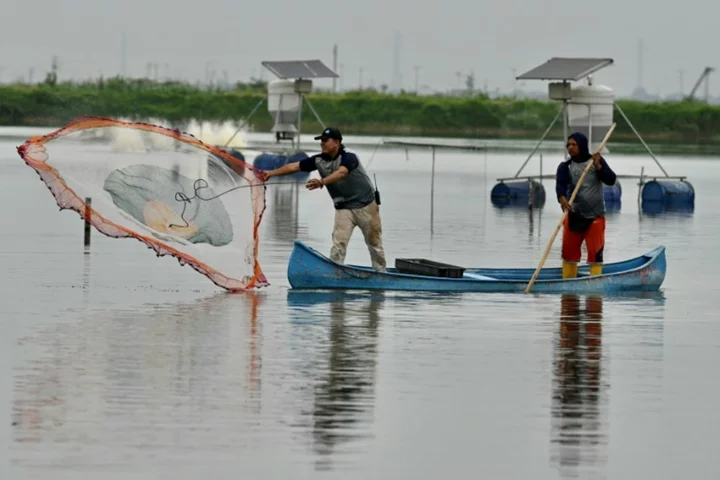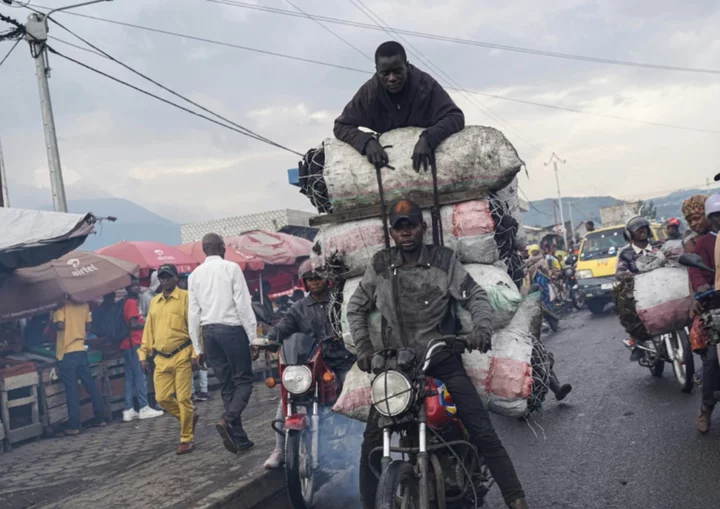From robberies on land to hold-ups at sea by rifle-toting, hooded men, Ecuador's shrimp industry is facing a wave of violent crime that is threatening the country's star export.
The South American country is the world's largest shrimp exporter, putting one in every five of the crustaceans on tables around the world, and this "pink gold" raked in a record $7.3 billion in 2022, according to official figures.
However, shrimp farmers are being forced to shell out millions of dollars in private security, which could impact the industry's competitiveness compared to countries like India or Vietnam where production is cheaper.
"We continue to be victims, daily, of criminals who are better armed than the police," said Jose Antonio Camposano, president of the National Chamber of Aquaculture (CNA), which unites 4,000 shrimp producers and exporters.
In the first eight months of 2023, the CNA registered 64 crimes against its members, including violent robberies at sea or along roads, some leaving deaths and injuries.
In one attack, armed men shot at six shrimp workers at close range as they left southern Puerto Roma, stealing their cargo and racing off in speedboats.
The workers arrived bloodied at a dock in the port city of Guayaquil, which has become a hotbed of organized crime linked to international drug trafficking.
Shrimp producers, speaking off the record, told AFP that criminals were robbing their wares to finance other illicit business.
In another attack, a driver for a shrimp farm was seriously injured after being hijacked and robbed by armed men along a highway.
- 'We work defensively' -
According to the CNA, robberies also take place at production pools where shrimp are farmed on shore.
The criminals sell the shrimp at local markers or to traders who attempt to introduce them into the export chain.
"When we leave to take our merchandise to land, we work defensively and locate the risk points where we could be attacked," said a 51-year-old local from Puna, one of several islands near Guayaquil dedicated to shrimp, which has dethroned bananas as the country's main non-oil export.
"The navy patrols, but doesn't dare get near the shrimp farms."
Navy officials said they could not take AFP on their patrols for security reasons.
Camposano said that attacks typically take place in the same "red zones" such as Punta Roma in the gulf of Guayaquil, the southern Jambeli archipelago and two strategic coastal roads used to transport shrimp to packing plants.
Using radar and its own technology, the CNA has gathered information on the hotspots and passed them on to police.
However, Camposano slammed the "total absence" of security forces in some areas, which he calls "no-man's land".
Kleber Siguenza, owner of a shrimp farm in the Guayas province of which Guayaquil is the capital, said a colleague of his was kidnapped in June in an area besieged by drug gangs, and he has hired private guards and installed a video surveillance system.
The CNA estimates its members have spent $100 million on security this year alone.
Edison Brito, president of a shrimp producers association in the neighboring province of El Oro, said members are also being extorted by criminal groups in exchange for "supposed security."
"We have given in because there is no support from the navy. There is no choice" but to pay.
str/lv/sp/fb/dw









